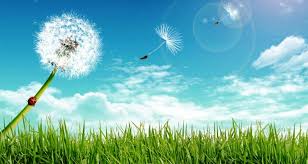
As patients and practitioners, we will all be glad to see the back of ‘flu season. This year particularly has been a nasty season. This is possibly due to the mild winter providing optimal breeding ground for germs and the fact that the temperature did not remain freezing for extended periods, which meant that germs were unable to be killed off.
The back of the ‘flu season means we can start thinking about glorious hay fever season. Hay fever is a common allergic condition that affects around one in five of us, leaving its victims with symptoms such as sneezing, runny noses and itchy eyes. Some of us suffer so badly that we find it difficult to even go outside. If you experience hay fever, it means that’s you are slightly or severely allergic to pollen.
Pollen is a fine powder that contains a protein that is produced during the reproductive cycle of plants, trees and grass. When we breathe in this fine, invisible powder it can set off an allergic reaction that makes our eyes water, nose run and sneeze, throat itch and make our sinuses blocked, swollen and irritated. All of these symptoms can leave us feeling quite fed up.
So what can we do to gain back some control over hay fever?
Here are a few tips:
Avoiding exposure to the pollen itself may be impossible. However you can limit obvious exposure such as being in close contact with pollens. For example, don’t spend your lunch break laying directly on the grass.
Be aware of the elements, check the weather forecast. Wind and rain can exacerbate symptoms and spread pollen more indiscriminately. On a windy day, limit your exposure to outside elements as much as you can.
Eye protection such as sunglasses can help prevent pollen getting into your eyes.A small amount of Vaseline around nasal passages has been said to act as a ‘trap’ where the pollens stick before they enter the passages. Be sure to wipe off and re apply
throughout the day when the pollen count is high.
It may be beneficial to find out which pollen you are allergic to – tree/plant/grass. That will help you ascertain when pollinating months will be and plan accordingly.
Medication. Hay fever is treated with anti-histamines and corticosteroids, which can be discussed with your pharmacist and bought over the counter. If you have seen that the pollen count is going to be high, it is worth using medication you have been given before you leave the house.
In severe chronic cases of hay fever there is immunotherapy treatment, where a sufferer is exposed to small amounts of pollen over time in order to build up the immune system to prevent an allergic reaction occurring when your body is exposed to pollen.
Arm yourself with a hay fever “kit,” which can include: pack of tissues, sunglasses, saline eye drops, over-the-counter antihistamine spray and cream.










